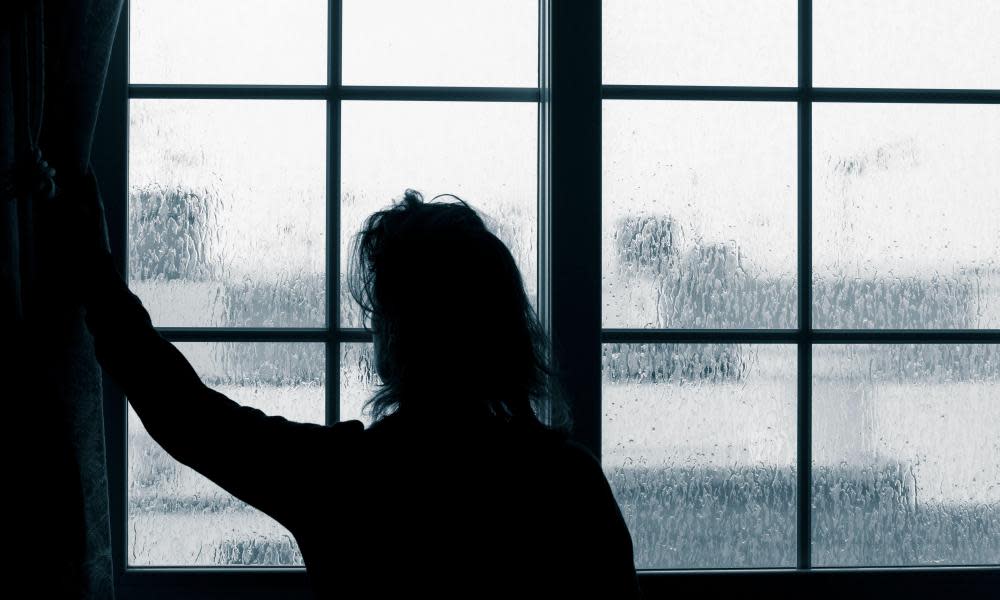‘No support’: domestic abuse survivors on feeling ignored by police

Women who have suffered domestic abuse have described feeling ignored by police, whom they accuse of failing to protect them from violence.
On the day a police watchdog said that preventing violence against women and girls should be considered as much of a priority as counter-terrorism, women told the Guardian that they had been left feeling scared and vulnerable after interactions with the police.
A report from Her Majesty’s Inspectorate of Constabulary and Fire & Rescue Services (HMICFRS) found a “staggering variation” in the way domestic abuse was dealt with across police forces in England and Wales, adding that while the response had improved in the past five years there remained “problems, unevenness and inconsistencies” in dealing with the “epidemic” of violence against female victims in the UK.
Louise*, who left a violent relationship after seven years, said that she was subjected to emotional, physical and sexual abuse. The response of the initial force who dealt with her case was “absolutely amazing” and they supported her in getting a non-molestation order in place which prevented her ex from contacting her and being within a certain distance of her home.
But she said that after moving to a house in a different county to start a new life, that support and feeling of security evaporated. When her ex discovered her new address and posted it online, she called the new police force but said the officers who did eventually come to her house were rude and dismissive, telling her “there was nothing they could do”. She later found out the officer had claimed he had called her solicitor, which was untrue, she claims.
“They later apologised to me and said he had just started his shift and hadn’t read up on historical notes. It was completely unacceptable – because me and my children have had these orders put in place to safeguard us and if the police are not going to act, then the orders are not worth the paper they’re written on.”
After a further breach her ex was arrested and released without charge, but Louise said she was not notified and when she called the force they would not give her any details about his release from a station close to her house. She called the force who had put the original non-molestation order in place and said the officer was shocked. “He said, ‘it would take anybody to look at your paperwork and historical events to know how dangerous this man is’ – he couldn’t believe it,” she said.
Farah Nazeer, the chief executive of Women’s Aid, said that “a postcode lottery still exists for too many women who experience violence and abuse”. The End Violence Against Women coalition said the report’s claim of “vast improvements” in police responses was “not the reality for many black and minority ethnic victim-survivors”, about whom there was a dire lack of data.
Angel, a 22-year-old survivor of domestic abuse, said she had reported physical abuse by a former partner to the police last year but had no contact from them for six months.
Finally an officer told her that her original report – which had taken five hours – could not be found. When she gave the details again she was told the incident qualified as common assault, and as six months had past it had gone over the time limit and could not be prosecuted. In more than two-thirds of the cases examined by the HMICFRS report, it found no evidence that victims had been referred on to support. Angel said she was given no signposting to anyone who might be able to help.
“I was told nothing could be done for me, I was left with no support, I was left with no advice,” she said. “My abuser knows that I’ve made this report, and just basically been left on my own to deal with it.”
Abbie, now 26, described reporting stalking when she was 16. She said the community liaison officer, called by her college to deal with the situation, was “visibly irritated” with her.
“I could tell that he didn’t consider stalking and street harassment to be an issue,” she said. “He didn’t even tell me how to make a statement – his objective was just to minimise it and discourage me from pursuing it. He said the police would be snowed under if they pursued cases like this.”
*Names have been changed.
• In the UK, call the national domestic abuse helpline on 0808 2000 247, or visit Women’s Aid. In the US, the domestic violence hotline is 1-800-799-SAFE (7233). In Australia, the national family violence counselling service is on 1800 737 732. Other international helplines may be found via www.befrienders.org.

 Yahoo News
Yahoo News 
